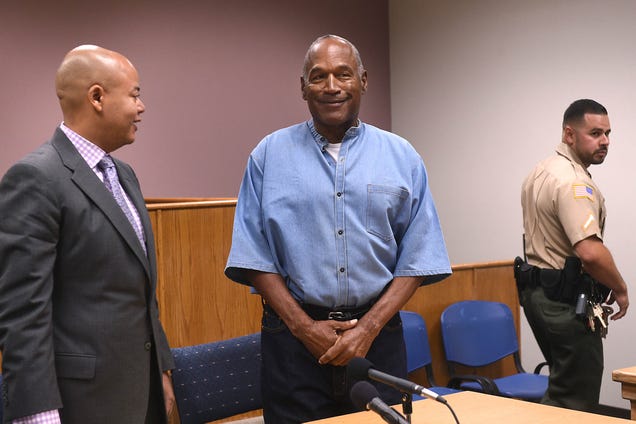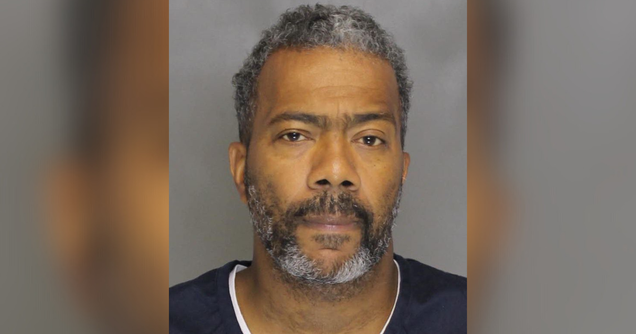Dr. Kizzmekia Corbett, viral immunologist and research fellow at the Vaccine Research Center at the National Institute of Allergy and Infectious Diseases, National Institutes of Health, has gone viral over the past few weeks after the news broke that she is leading the team of scientists working on the COVID-19 vaccine. While many are celebrating the pivotal role that she, as a black woman, is playing in combating the pandemic, Dr. Corbett wants others to know that they are capable of making their mark on the world, too.
In an exclusive interview with BLACK ENTERPRISE, Dr. Corbett shared her journey to the lab and her experience as the scientific lead on the coronavirus vaccine. Listen to the full conversation and get to know the woman who is working tirelessly to respond to America’s health crisis.
Someone once shared a quote with Dr. Corbett that stated that people should be able to describe themselves to others without mentioning what they do for other people.
And in her own words, Dr. Corbett says, “I am Christian. I’m black. I am Southern, I’m an empath. I’m feisty, sassy, and fashionable. That’s kind of how I describe myself. I would say that my role as a scientist is really about my passion and purpose for the world and for giving back to the world.”
Being able to differentiate her identity as a woman and a professional helps her to stay grounded. Especially during times like this.
“If you can unwind and be true to who you are, it helps to reckon with things. My team is responding to the world’s most devastating global pandemic in the last hundred years. And so, there’s something to be said about knowing who you are.”
Practicing showing up as herself helps Dr. Corbett cultivate culture in the lab. Some of the ways that she does that is by switching up her hair and listening to Young Jeezy in the lab with her team.
Hear from Dr. Corbett
“I am true to who I am, but I understand that there is a level of professionalism that is attached to essentially what is my newfound status as a scientific lead of this coronavirus vaccine.”
Taking The Lead
Dr. Corbett has been called on by people in high places. President Trump is one of them. In March, Trump visited the NIH because of its groundbreaking research after five years of work.

NIAID Director Tony Fauci (center) discusses vaccine research with the President. Barney Graham, the VRC’s deputy director (right). John Mascola, VRC director; Alex Azar, secretary of the Department of Health and Human Services (to his left); President Trump; and Kizzmekia Corbett, a VRC research fellow who is working on developing a vaccine for the novel coronavirus. (Image: NIH)
“I would have never thought that I would be in this moment right now. I wake up sometimes and I’m like, are we living an alternate universe? God is shaking the table,” said Dr. Corbett. Moreover, “The research that we’re doing is what we have essentially planned to do.”
Listen as Dr. Corbett weighs in
Leading a team through this crisis has been a learning experience for Dr. Corbett.
“I’m being introduced to various facets of vaccine development where I was once just understanding the science and doing the preclinical work. Now, I’m connected to [an] array of physicians who understand the human immunogenicity side, the FDA, and tech companies. All of this has been a very intricate network and a learning experience for me.”
As a woman of faith, Dr. Corbett is counting her blessings. “I’m frankly in a very blessed position to be able to respond to this pandemic in the way that I am with some level of purpose and passion.”
She is also grateful for her team and the opportunity to lead and be visible. She is particularly grateful for her boss Dr. Barney Graham.
“Dr. Barney Graham has been extremely instrumental in this entire process, his forethought to allow me to work with a team on a virus that essentially nobody cared about.”
Related; Obama Compares Trump’s Delayed Coronavirus Response to Climate Change Deniers
She went on to say, “We knew that it would be a potential pandemic threat. So, I have to give him a shout out in that way because he is amazing—and probably one of the smartest people that I know—particularly around the future of science and where we should take vaccinology.”
Seeing Herself in Science
As you can imagine, no one becomes a groundbreaking scientist overnight. Since high school, science has been a passion for Dr. Corbett. During the summers of her 10th and 11th grades, she began working in a chemistry lab at the University of North Carolina. That is where she first saw herself in science.
“I was in the middle of a laboratory with this world-renowned organic chemist, his name is James Morkin. And he paired me with a black grad student, Albert Russell,” said Corbett. “Beyond the love for science and the scientific process, I learned that being him was possible.”
Russell is now a professor and head of the Organic Chemistry department at Tuskegee University. Dr. Corbett’s passion for science is two-fold. And, it stems from impact and representation.
“I didn’t even know that this thing called a Ph.D. even really existed. Or, at least I didn’t know what it meant. And so, to have someone going through the graduate school process who was a familiar face—he was a black man from Alabama—really kind of helped me.”
Summers in the lab at UNC gave Corbett a different outlook on her career options in science. It also helped her understand the importance of mentorship.
“One thing that is really important, and I preach it from the mountaintops quite a bit, is that all of my mentors knew me personally in the way that there was a science. And then I made sure that I was real about who I was and where I came from.”
Being authentically intelligent has also helped her to gain sponsors as she navigates the lab.
“In the bad world of science and the competition and all types of mess having a person of authority that you have breathing room with was has been important. There are mentors, there are advocates, I think I’ve, along the way, kind of just picked up, picked up people.”
Navigating the Lab
Being a black woman in the workplace is a unique experience regardless of if you’re climbing the corporate ladder or navigating the lab. Being dynamic and exceptional is a part of her formula. With the guidance of her mentors and advocates, Corbett has been able to have a positive experience in the lab. But she still has encountered microaggressions within the industry.
“There are some things that I continue to see. Sometimes I’m a little bit dismissed. My views have to go through my boss who happens to be a white man. Or people will blatantly ask him to ask me something. And then he’ll say, ‘Well, you know Kizzmekia is the scientific lead on the coronavirus team.’ And, they’ll reply back through him.”
Despite the disregard, Dr. Corbett doesn’t take it personally.
“I like to say that I can go from the trap house to the White House and smooth transition. And, I have. I communicate well, across different communities. I speak to scientists the way that I speak to scientists, and then I’m able to speak to the layperson the way that I speak to [the] general population,” said Dr. Corbett.
She also says that you just have to show up.
“At some point, you just have to say, ‘I don’t care what they think’, and just show up and let your work speak for you.”
In doing so herself, Dr. Corbett is committed to diversifying the lab with candid conversations with people around the table about how to change those faces.
“Having these types of conversations around inclusion—and really what is essentially cultural sensitivity [helps]. Because if I say something in African American vernacular it doesn’t change the fact that the data is the data. I think that as we progress and as generations change, it’ll get easier for everybody.”
Practicing Self-Preservation
Self-preservation during the coronavirus crisis is top of mind for people as they protect their immune systems. As Dr. Corbett does the work, practicing self-care and relying on her tribe is critical to her well-being.
In the midst of responding to the crisis, Dr. Corbett has taken on the mentality that, “Sometimes you gotta let go of some control.” Her tribe and therapy help her remain grounded and mentally fit.
Related: Black Can Crack: Protect Your Mental Health During the COVID-19 Crisis
And she encourages others to stay on top of their wellness. Especially as people are sheltered in place. “Just because you have to practice social isolation doesn’t mean you can’t take a walk or jog.”
When It’s All Said and Done
As one of the scientists at the forefront of the crisis, Dr. Corbett hopes that the pandemic makes people more empathetic.
“Many of the things that you do in life should have some level of concern about somebody else. Even if it’s just that you have to pick one person. I would hope that everybody would have a concern for just the world, I think that it will make the entire world a better place.”
Empathy coupled with trust is what Dr. Corbett believes will help flatten the curve.
“One of the things that has come out of this moment is that my community does not trust our government. I think I was blinded by it because I sit in a seat, to be frank, of privilege. And so, it’s disheartening because I’m having people say, ‘They chose her so that they can get us to believe that the vaccine is good and then they will just like don’t poison us or something.’ I want people to kind of just step back for a little bit and just for just one second or a couple of seconds. Just think, what if nobody is out to hurt me?”
Related: Report: Doctors Are Concerned That Black Communities Might Not Be Getting Access To Coronavirus Tests
At the end of the day and this pandemic, Dr. Corbett wants to ensure that the black community and America is healthy and safe.
Making Her Mark
The community has played an instrumental part in Dr. Corbett’s success. Both the community who have lifted her up and the one that she hopes to leave a lasting impact.
“My community has held me down. Particularly during this time and previous times as I’ve moved throughout my career trajectory. So, it’s important to me to give back in that way.”
As Dr. Corbett continues on her journey she is working toward a goal of owning scientific intellectual property, formulating a vaccine that goes out to the general population, and winning a Nobel Prize.
In fact, if Dr. Corbett wins a Nobel Prize she is certain that rappers Young Jeezy and Da Baby will be there to perform and turn up as she celebrates her accomplishments!
from Black Enterprise https://ift.tt/3bI42Gz







